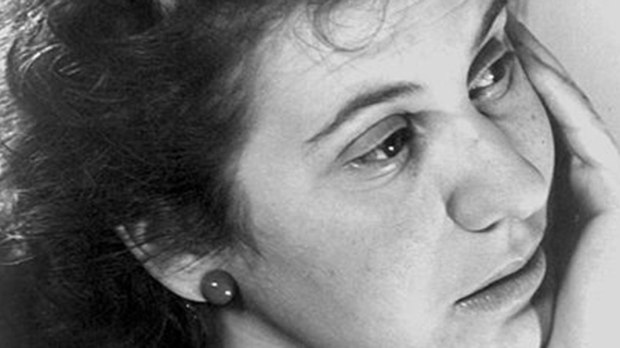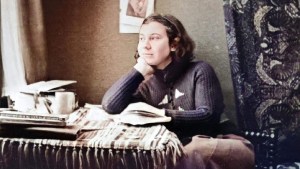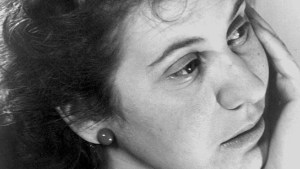Some 80 years ago, Etty Hillesum died in Auschwitz at the age of 29. She had been born into a Jewish family but had been far from any religious practice. Murdered by the Nazis, she left a legacy of writings that bear witness to her search for a “new language” to speak of God “in the hell of the camps.”
This was emphasized on Wednesday, November 29, by Cardinal José Tolentino de Mendonça, Prefect of the Dicastery for Culture and Education, at a seminar dedicated to the young woman organized in Rome under the auspices of the Dutch Embassy to the Holy See. The Portuguese cardinal himself suggested that the Dutch ambassador to the Holy See, Annemieke Ruigrok, celebrate the birthday of the woman he considers a great mystic.
The 57-year-old prefect, who is close to Pope Francis, is co-author of the 2018 book In the Footsteps of Etty Hillesum (Nos Passos de Etty Hillesum), produced with photographer Filipe Condado during a pilgrimage to Amsterdam.
Etty Hillesum became world-famous thanks to her diary, which records her spiritual and existential journey.
It’s the young woman’s “spiritual strength” that touches the cardinal personally. Hers is a strength that doesn’t suggest “fleeing,” but “urges us to stay” despite the horror. It “doesn’t allow us to give up, but allows us to keep knocking on the door, in season and out of season,” he said during the seminar at the Pontifical Gregorian University.
A “spiritual awakening”
Etty underwent a three-year “spiritual awakening” that was also a “solitary” journey. She had to “invent herself,” the cardinal emphasized. He believes that she can be inspiring for young people today.
On her path, she was inspired by the German poet Rainer Maria Rilke, but also in great part by the Bible, including passages from the New Testament such as the Sermon on the Mount or St. Paul’s Hymn to Charity.
This path led her to write some of “the most extraordinary prayers a human being can utter,” even as her world was collapsing under the German invasion, the cardinal said. And, continued the prefect, it would also lead this “lover of God” to profess her indelible hope in her last letter, which she signed with these words: “We left for camp singing.”
Benedict XVI offered her as an example 10 years ago
Many others have been edified by Etty Hillesum’s journey. Benedict XVI offered her as an example to the Catholic faithful, and in a very particular context. Two days after announcing his resignation from the throne of Peter, the German pontiff presided over a general audience — his penultimate — at the Vatican.
In his catechesis, watched by thousands of Catholics moved by the departure of their pope, he quoted the Dutch Jewish woman. Then he said, “In her disrupted, restless life she found God in the very midst of the great tragedy of the 20th century: the Shoah. This frail and dissatisfied young woman, transfigured by faith, became a woman full of love and inner peace who was able to declare: ‘I live in constant intimacy with God.’”



